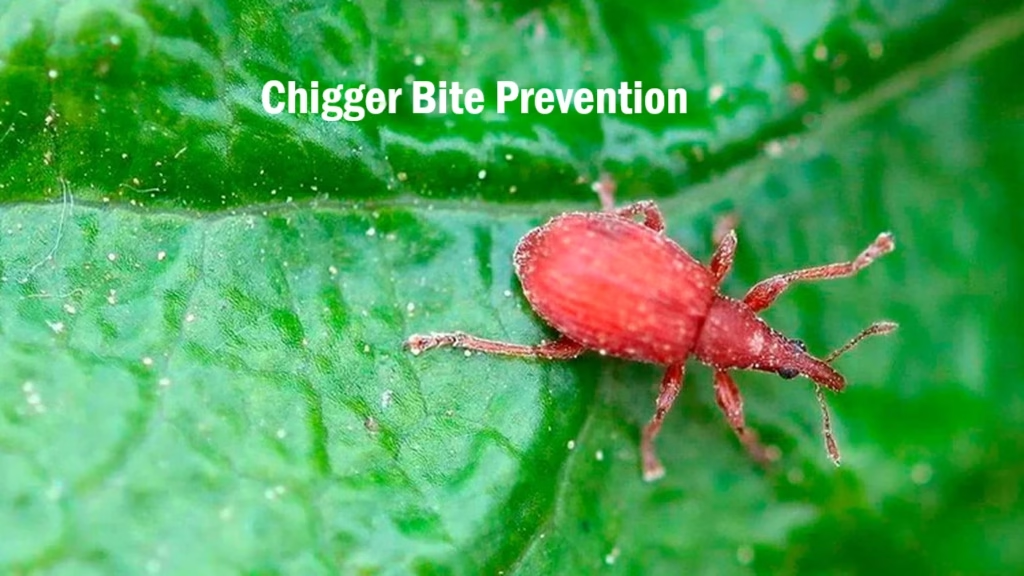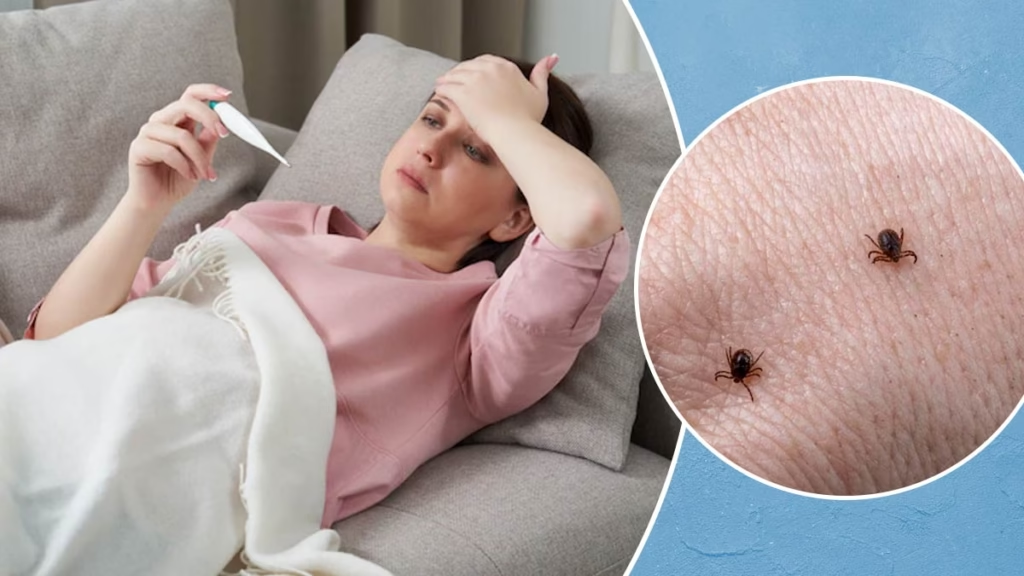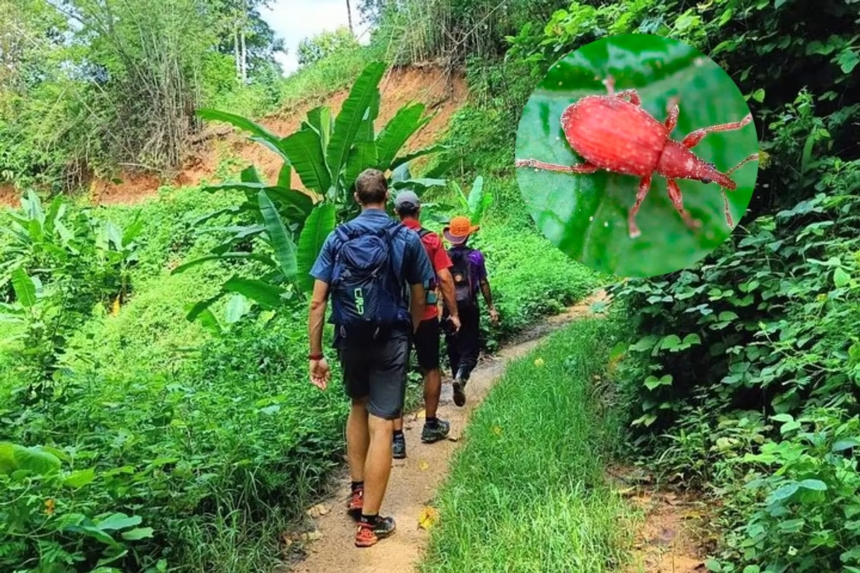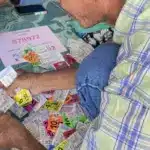CHIANG RAI – The Ministry of Public Health has warned about Chiggers and scrub typhus, as the rainy season comes to an end, more people head outdoors to enjoy the cool season. In 2025, there were 6,688 reported cases and 5 deaths. Provinces with the highest incidence were Chiang Rai, Nan, Roi Et, Chiang Mai, and Mae Hong Son.
Dr Hiranwut Phraekhunatham, Director of the Office of Disease Prevention and Control, explained why cases rise in October. Humid weather and cooler temperatures help chigger mites breed. Late rainy season and early winter are popular times for trekking and camping. If clothing does not cover the skin well, the risk of chigger bites increases.
Chiggers thrive in grass clumps and overgrown farmland, so bites are more common there. This period also overlaps with rice harvesting and field work, which puts farmers in contact with infested areas. Chiggers usually feed on rodents, which act as the reservoir.
Scrub typhus is a bacterial infection acquired through bites from infected chigger mites. These mites live in grass, scrub, damp forest edges, and paddy fields. Symptoms often begin 10 to 12 days after exposure.
Common signs include several days of high fever, chills, headache, muscle aches, fatigue, cough, and nausea or vomiting. Some people develop red eyes. A hallmark is a small black scab at the bite site, like a cigarette burn, which may not hurt or itch.
Some patients have only mild symptoms at first. Without treatment, serious problems can occur, such as pneumonia and meningitis or encephalitis, which can be life-threatening.

How to Prevent Chigger Bites in Chiang Rai:
- Wear long-sleeved shirts and long trousers.
- In risk areas, use insect repellent on skin or clothing.
- Avoid sitting or lying directly on soil or grass.
- After visiting risk areas, bathe promptly, wash your hair, and launder worn clothes with water and detergent to remove any chiggers.
Farmers and trekkers should take extra care. Keep the home area clean if you have pets, and prevent rodents or other vectors from nesting. Cut the grass and loosen the soil around the house so the area stays clear.

If you have a high fever, headache, body aches, a rash, or red eyes, and you notice an eschar that looks like a cigarette burn, see a doctor quickly. Tell the clinician if you visited forests or paddy fields. Do not buy antibiotics for self-treatment.
For more information, call the Department of Disease Control hotline on 1422.














